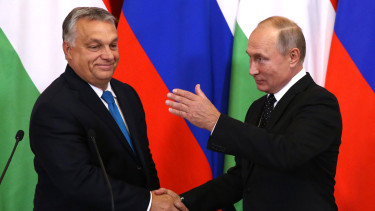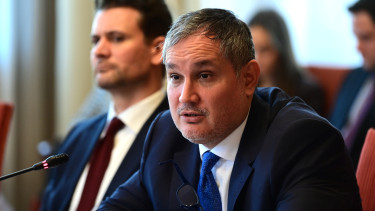COVID-19: European Commission authorises 3rd safe and effective vaccine

This authorisation follows a positive scientific recommendation based on a thorough assessment of the safety, effectiveness and quality of the vaccine by the European Medicines Agency (EMA) and is endorsed by the Member States, the EU executive said on Friday.
AstraZeneca's COVID-19 vaccine is the third to be granted a CMA in the EU after the vaccines developed by BioNTech/Pfizer and Moderna.
“Securing safe vaccines for Europeans is our utmost priority. With the AstraZeneca vaccine now authorized, 400 million additional doses will be available in Europe. I expect the company to deliver these doses as agreed, so that Europeans can be vaccinated as soon as possible. We will continue doing all we can to secure more vaccines for Europeans, our neighbours and our partners worldwide,” commented European Commission President Ursula von der Leyen.
"The Commission continues to work around the clock to secure more vaccines for Europe and our international partners. We are leaving no stone unturned in our fight against this pandemic,” added Stella Kyriakides, Commissioner for Health and Food Safety.
The AstraZeneca vaccine will be given to adults aged 18 years and older for preventing COVID-19. The vaccine causes the immune system (the body's natural defences) to produce antibodies and specialised white blood cells that work against the virus, so giving protection against COVID-19. People vaccinated will receive two injections of the AstraZeneca vaccine.
According to EMA, most of the participants in the studies were between 18 and 55 years old. There are not yet enough results in older participants (over 55 years old) to provide a figure for how well the vaccine will work in this group. However, protection is expected, given that an immune response is seen in this age group and based on experience with other vaccines; as there is reliable information on safety in this population, EMA's scientific experts considered that the vaccine can be used in older adults. More information is expected from ongoing studies, which include a higher proportion of elderly participants.
On the basis of EMA's positive opinion, the Commission has verified all the elements supporting the marketing authorisation and consulted Member States before granting the conditional marketing authorisation.
How does it work?
The AstraZeneca vaccine is based on an adenovirus, a harmless virus which delivers the ‘instructions' from the virus that causes COVID-19.This allows the body's own cells to make the protein unique to the COVID-19 virus. The person's immune system recognises that this unique protein should not be in the body and responds by producing natural defences against infection by COVID-19.
The Committee for Medicinal Products for Human Use (CHMP) of the European Medicines Agency recommends two doses of COVID-19 Vaccine AstraZeneca, formerly AZD1222, to be administered at a four- to 12-week interval in people aged 18 years and older.
"This dosing regimen was shown in clinical trials to be safe and effective in preventing symptomatic COVID-19, with no severe cases and no hospitalisations more than 14 days after the second dose," AstraZeneca said in a separate press release.
The vaccine can be stored, transported and handled at normal refrigerated conditions (two-eight degrees Celsius/36-46 degrees Fahrenheit) for at least six months and administered within existing healthcare settings
Next steps
According to the contract signed with the European Commission on 27 August 2020, AstraZeneca will deliver the total amount of 400 million doses throughout 2021. These will add to the 600 million doses of the vaccine by BioNTech-Pfizer and the 160 million doses of the vaccine by Moderna.
Following the renewed request from the European Commission on 27 January 2021, pharmaceutical company AstraZeneca has agreed to publish the redacted contract signed between the two parties on 27 August 2020.
Transparency and authorisation mechanism for exports of COVID-19 vaccines in place in EU
In an effort to ensure timely access to COVID-19 vaccines for all EU citizens and to tackle the current lack of transparency of vaccine exports outside the EU, the European Commission has also put in place on Friday a measure requiring that such exports are subject to an authorisation by Member States.
"This transparency and authorisation mechanism is temporary, and we will of course continue to uphold our commitments towards low and middle income countries,” commented EC President Ursula von der Leyen.
“This time-limited and targeted system covers only those COVID-19 vaccines that were agreed by Advanced Purchase Agreements with the EU," added Executive Vice-President and Commissioner for Trade Valdis Dombrovskis.
The aim is to provide greater clarity on vaccine production in the EU and their exports – this transparency has been lacking and is vital at this time.
This mechanism includes a wide range of exemptions to fully honour the EU's humanitarian aid commitments and protect vaccines deliveries to its neighbourhood, and to countries in need covered by the COVAX-facility.
"We gave upfront funding to companies to build the necessary manufacturing capacity to produce vaccines, so deliveries can start as soon as they are authorised. We now need transparency on where the vaccines we secured are going and ensure that they reach our citizens. We are accountable towards the European citizens and taxpayers – that is a key principle for us,” said Commissioner for Health and Food Safety Stella Kyriakides.
The export authorisation scheme
This implementing act, adopted by urgency procedure and published on 29 January, provides for authorisations of exports outside the EU of COVID-19 vaccines until the end of March 2021. This scheme only applies to exports from companies with whom the EU has concluded Advance Purchased Agreements.
Based on the previous experience with a similar measure on personal protective equipment in Spring 2020, the Commission will assist Member States in setting up the relevant mechanism to ensure a smooth and coordinated implementation of the regulation.
This measure is targeted, proportionate, transparent and temporary. It is fully consistent with the EU's international commitment under the World Trade Organization and the G20, and in line with what the EU has proposed in the context of the WTO trade and health initiative. Committed to international solidarity, the EU excluded from this scheme vaccine supplies for humanitarian aid or destined to countries under the COVAX facility, as well as our neighbourhood.
Cover photo: Getty Images







